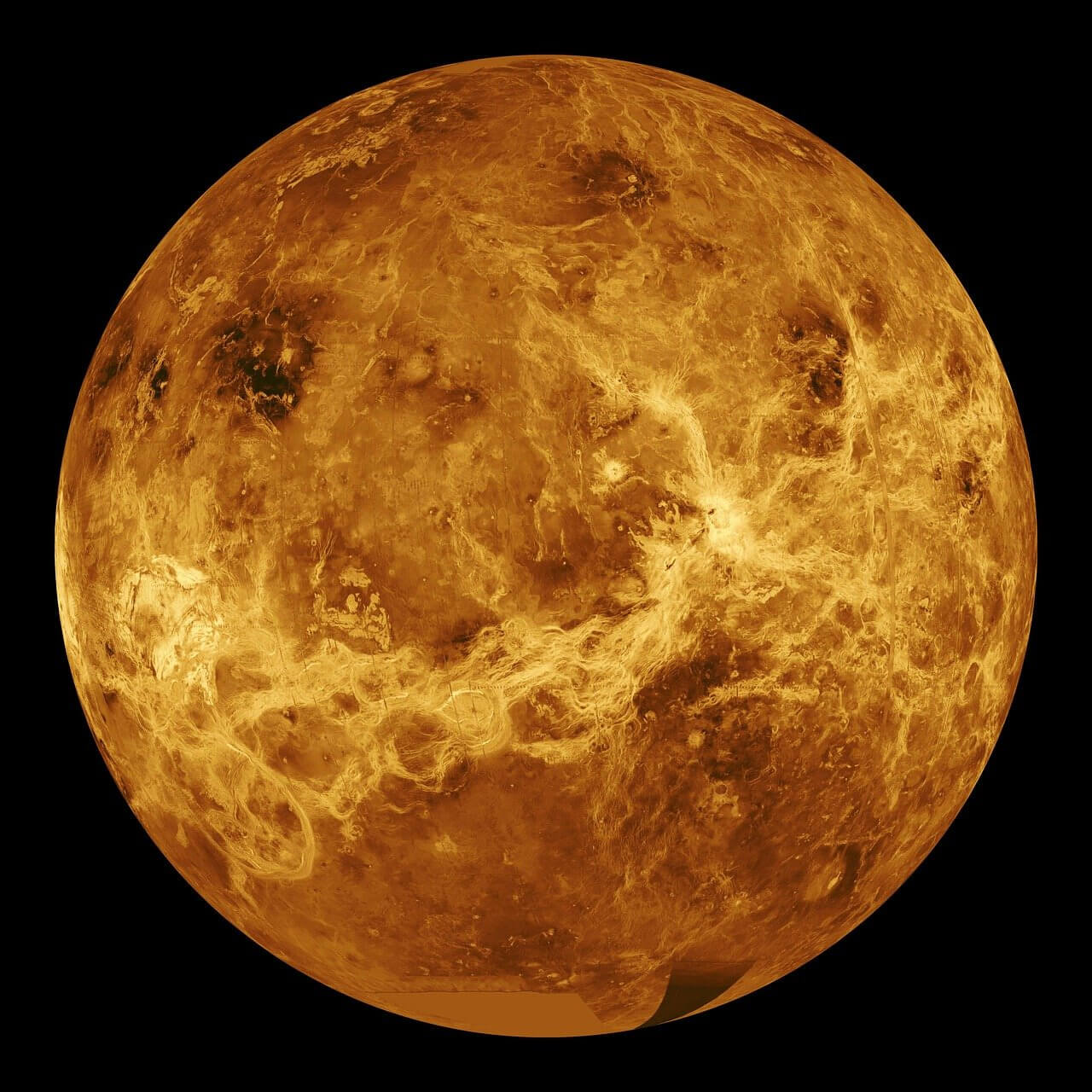Can Venus Be Habitable?
Venus might not be such a soulless, waterless hell today, if Jupiter hadn’t changed its orbit around the Sun, according to new research from the University of California, Riverside.
The mass of Jupiter is two and a half times that of all the other planets in the Solar system combined. Because it is relatively large, it has the ability to disrupt the orbits of other planets.
At the beginning of the formation of Jupiter as a planet, it moved closer to the Sun, and then moved away from it due to interaction with the disk from which planets are formed, as well as with other giant planets. This movement, in turn, affected Venus.
Observations of other planetary systems have shown that such giant migrations of planets soon after formation may be relatively common. These are the results of a new study published in the “Planetary Science” journal.
Scientists believe that planets devoid of liquid water are not capable of accepting life as we know it. Although Venus may have lost some water at the beginning of its formation for other reasons, and may have continued to do so. UCR astrobiologist Stephen Kane said that Jupiter’s movement probably put Venus on a path to its current, inhospitable state.
One of the interesting things about modern Venus is that its orbit is almost perfectly round”,- said Kane, who led the study. “With this project, I wanted to investigate whether the orbit was always circular, and if not, what are the consequences of this?”
To answer these questions, Kane created a model that simulated the Solar system by calculating the location of all the planets at any given time and how they pull each other in different directions.
Currently, the orbit of Venus is the roundest of all the planets in our solar system. However, Kane’s model shows that when Jupiter was closer to the Sun (about a billion years ago), Venus was probably habitable.
Kane said:
When Jupiter migrated, Venus experienced dramatic climate changes, warming and then cooling and losing more water in the atmosphere.
Recently, scientists were very excited when they discovered gas in the clouds above Venus, which may indicate the presence of life. The gas, phosphorus, is usually produced by microbes, and Kane says it may represent “the last surviving species on the planet that has experienced dramatic changes in the environment”.
However, to do this, Kane notes, microbes would have to maintain their presence in the sulfuric acid clouds above Venus for about a billion years since Venus last had surface liquid water – a hard to imagine, though not impossible scenario. There are probably many other processes that could produce gas that has not yet been investigated.
Ultimately, Kane says, it’s important to understand what happened to Venus, a planet that was once probably habitable but now has a surface temperature of up to 450 degrees Celsius.


